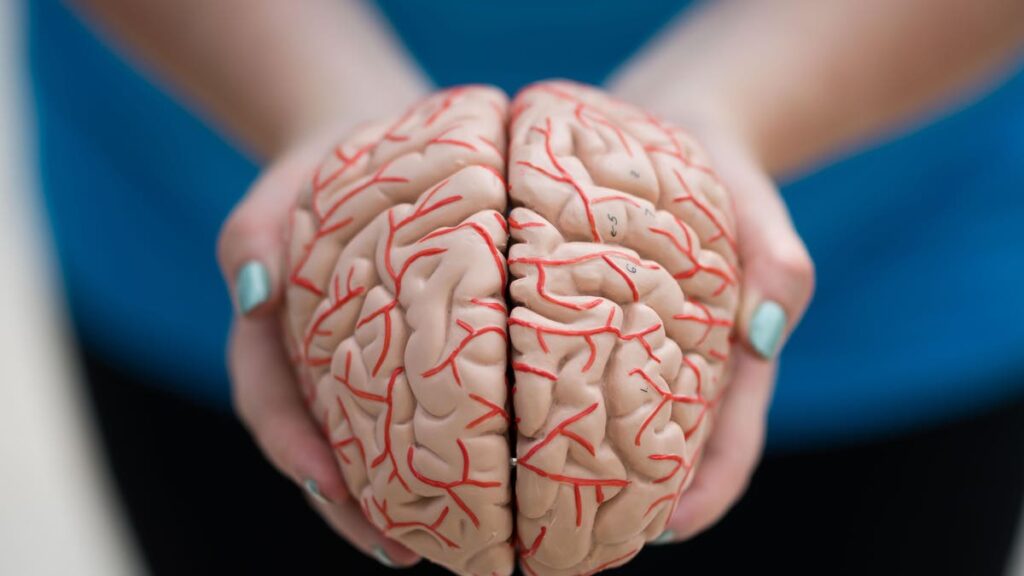Topline
Researchers have identified thousands of genes linked to brain structure that shine a light on how our genetic makeup shapes the development of the brain, according to research published in Nature Genetics on Thursday, illuminating a poorly understood area of science and potentially paving the way for better treatments for a host of neurological and psychiatric conditions.
A woman holds a model of a human brain in her hands.
Key Facts
A team of researchers from institutions including the University of Cambridge, the University of Philadelphia, Harvard University, Erasmus University Rotterdam and the University of California, Los Angeles identified more than 4,000 gene variants that are linked to brain structure.
Relatively little is known about how our genes influence brain development and the findings have allowed researchers to confirm how different properties of the brain—such as size, shape and how it is folded—are genetically linked to one another, as well as identify new links.
The work shows that at least some part of how our brain develops is driven by our genes, said Varun Warrier, a researcher at the University of Cambridge’s Autism Research Center who co-led the study.
By comparing a number of different brain properties to genetic data, Warrier said the team found that “different sets of genes contribute to folding and size of the cortex,” the outer layer of the brain involved in many higher level functions and linked to numerous psychiatric and developmental disorders like schizophrenia and ADHD.
The team also checked whether their findings matched up with what is seen in the real world and found the same genes that are linked to differences in brain size for the general population overlapped with genes connected to cephalic conditions, clinical conditions where a person’s head size is much larger or smaller than expected.
Key Background
In the long term, Warrier said the findings can be used to better understand how changes in brain shape and size lead to neurological and psychiatric conditions, and potentially lead “to better treatment and support for those who need it.” A stronger grasp of the underlying genetics of various brain differences could, for example, help scientists understand how or why certain conditions develop or how different conditions are connected and help clinicians treat underlying issues instead of symptoms. Additionally, knowing the genetics of brain development better could help drugmakers identify new treatments or target conditions with greater precision.
What We Don’t Know
The peer reviewed research is the largest ever genetics study of the brain and involved analyzing genetic data and brain scans from more than 36,000 people in the U.K. and U.S. While it has boosted our understanding of how genes influence the brain, a great deal of how genetics underpins brain structure is still unknown. For example, “we still do not know how exactly these genes lead to changes in brain size,” said Richard Bethlehem, also from Cambridge’s Autism Research Centre and co-lead of the study.
Further Reading
Human gene linked to bigger brains was born from seemingly useless DNA (Science)


